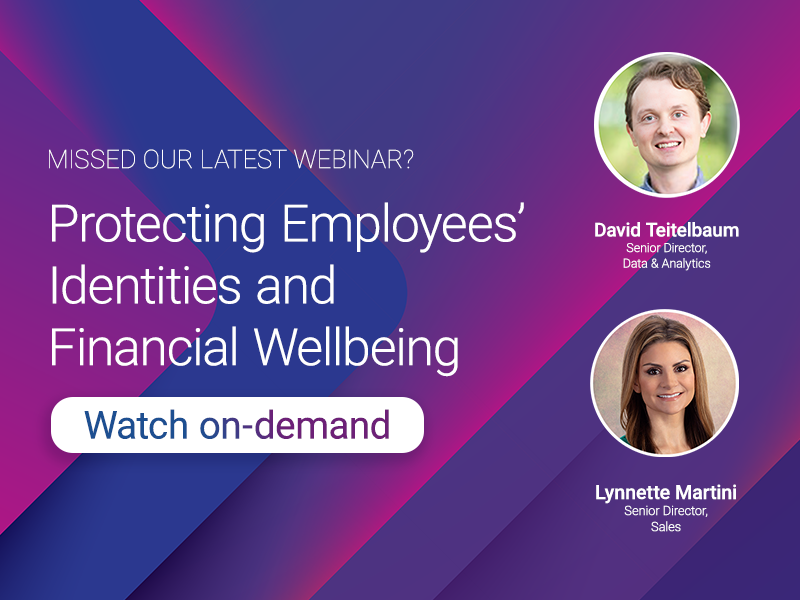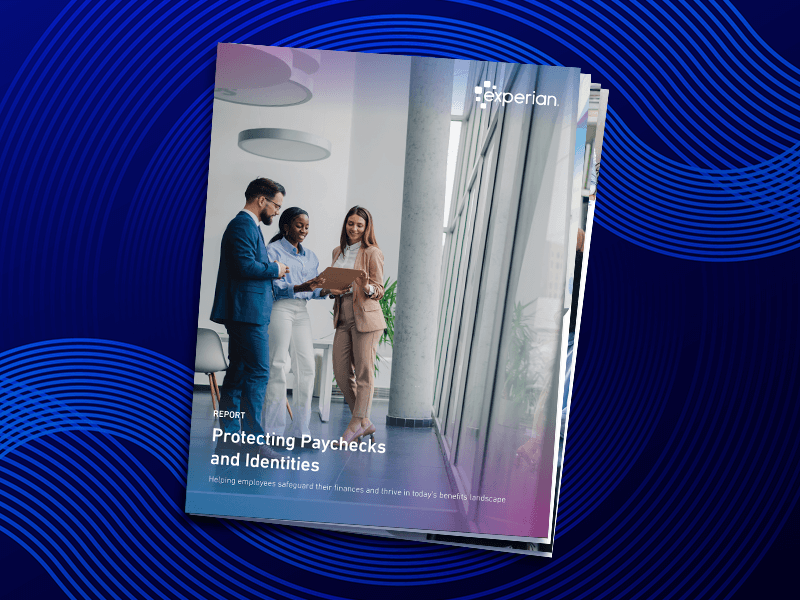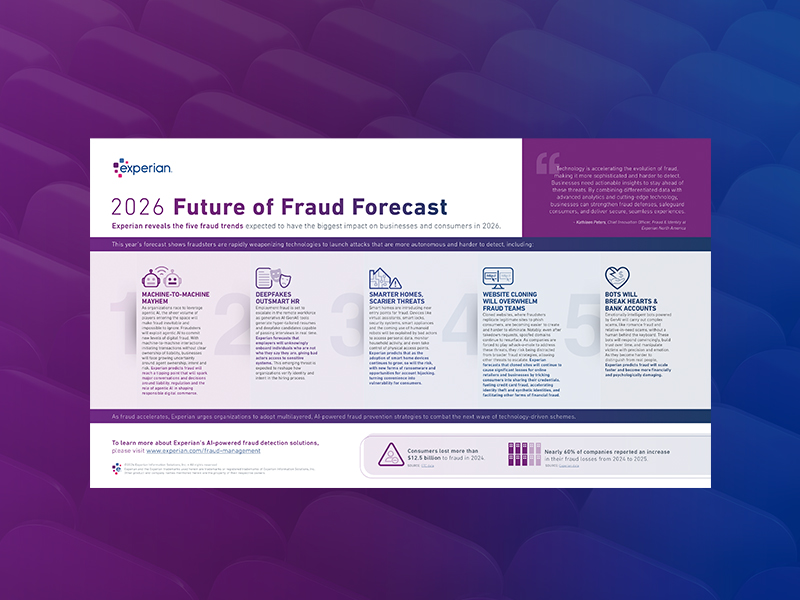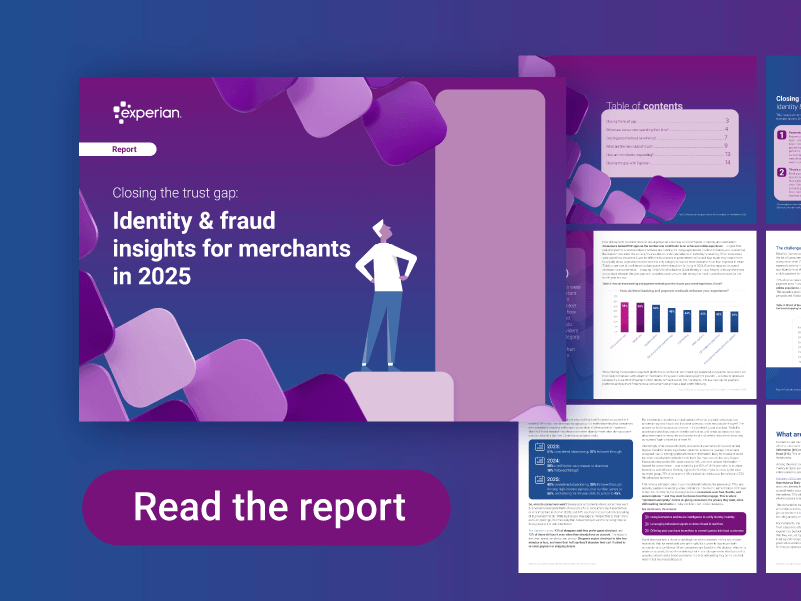Video
Published November 15, 2022
IdentityExperian's Kathleen Peters weighs in on the importance of privacy and security, a personalized experience, and leveraging data when it comes to building an effective identity strategy.
Complete the form to access the video
This site is protected by reCAPTCHA and the Google Privacy Policy and Terms of Service apply.
 Webinar
Webinar
Protecting Employees’ Identities and Financial Wellbeing
Experian experts discuss how companies are integrating credit education, identity protection, and financial wellness into their employee benefits offerings.
Watch our on-demand webinar to discover:
- Why traditional benefits are no longer enough.
- How to deliver all-in-one financial protection.
- Real-world results from Experian-powered solutions.
- What your employees really want from their benefits.
 Report
Report
Protecting Paychecks and Identities
Learn how you can move beyond single-point employee benefit solutions and embrace a more holistic approach that combines:
- Credit education to help employees understand and take control of their credit health
- Financial wellness tools to support budgeting and day-to-day financial confidence
- Identity protection to safeguard what employees have worked hard to build
 Infographic
Infographic
2026 Future of Fraud Forecast
Download Experian’s 2026 Future of Fraud Forecast to explore five fraud trends expected to have the biggest impact on businesses and consumers in the coming year, including:
- Agentic AI and machine-to-machine fraud
- Deepfake-driven employment fraud
- Smart home device exploitation
- Website cloning and emotionally intelligent fraud bots
 Report
Report
Identity and fraud insights for merchants
Consumers expect e-commerce experiences to be seamless and secure but, as fraud threats evolve, merchants are struggling to keep pace — and consumers are losing trust in merchants. Drawing on this year’s U.S. identity and fraud insights, this report explores the key factors contributing to the e-commerce trust gap.
You’ll learn:
- What’s driving consumer concerns in e-commerce.
- Consumers’ preferred security methods for seamless, safe transactions
- Actionable recommendations to enhance merchants’ fraud stacks